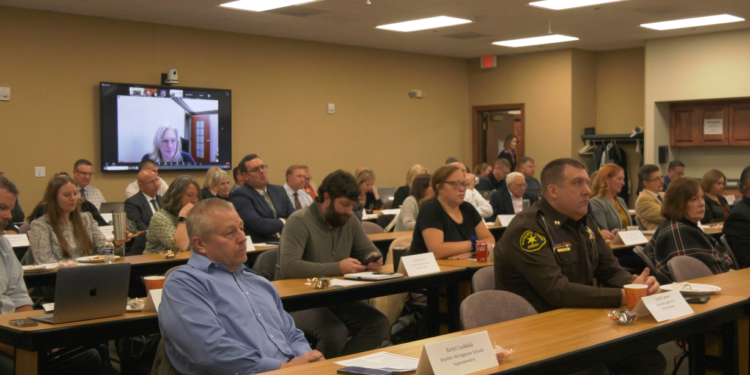MARQUETTE, Mich. (WZMQ) – Marquette-Alger RESA held its annual legislative breakfast to discuss legislative priorities within rural education Friday morning.
Legislators and local school districts discussed many topics in relation to education within the U.P, and where they would like to see improvement. The topics included teacher recruitment and retention, the creation of student-centered policies, infrastructure, and room for potential top line investments.
“This is a great opportunity for all of the superintendents in the U.P. to meet with the legislators who represent the districts across the U.P., and express the needs in our respective districts,” said Dr. Travis Smith, Deputy Superintendent for Marquette-Alger RESA.
In hopes to see better teacher recruitment and retention, they discussed the possibilities of offering better retirement opportunities for school employees, as well as the idea of being more flexible with the need for a teacher certification during critical staff shortages.
During the breakfast, they also acknowledged the need for districts to provide affordable housing for both students and staff, as this is a large factor in overall school retainment rates.
“Buildings are getting older and schools for years, because of budget cuts, have not been able to replace things appropriately,” said Smith. “School districts are advocating more money to address infrastructure.”
Infrastructure is highly important to both students and staff to better learning and teaching facilities. They are looking to gain funding for not only academic spaces, but appropriate funding for school swimming pools and the support for swimming lessons as well.
Creating more student-centered policies was another topic of importance, school districts are pushing for more flexibility to use safety and mental health funds in ways they see best fit for their school, including increase in mental health support and hiring more school resource officers.
The breakfast was a good opportunity for both Legislators and U.P. Superintendents of local school districts, and those involved say it was a step toward bettering education in rural Michigan.










